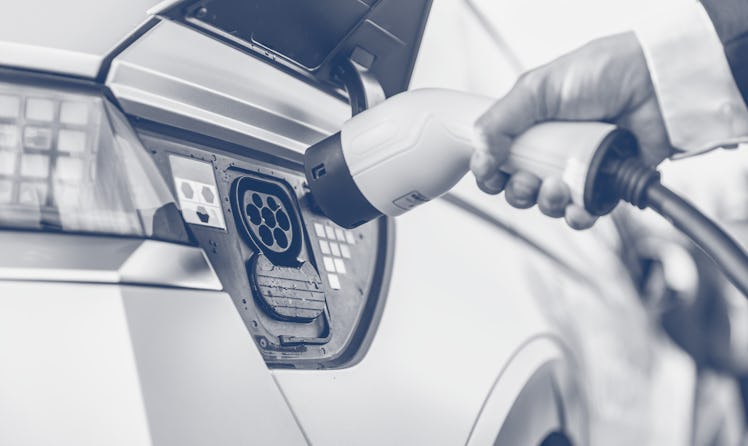Two Reports Show Your Next Car Will Probably Be Electric
Want an electric vehicle? You’re probably not alone.

Two new reports show that electric vehicles are becoming more widely adopted in the U.S. — and even more desired by American consumers — compared to when they first hit the roads.
Consumer Reports recently released a report that shows 14% of American drivers said they would “definitely” lease or buy an EV today. That percentage point has jumped up by 4% from the 2020 report — a major jump for just two years.
The reasons for the increased interest in EVs are financial, with people realizing that “it costs less for electricity to recharge an EV than for gasoline to fuel a conventional car.” Other factors that survey respondents considered were that there are lower maintenance costs, and lower overall costs, that come with owning an electric vehicle.
The survey respondents aren’t far off the mark. A report from a climate policy think tank in May of 2022 found that electric vehicles are cheaper to buy and maintain in almost every state than their fossil-fueled counterparts, right off the lot, even when the sticker price of EVs might be considerably higher. Part of this is because of federal subsidies — car buyers can get tax credits for buying electric vehicles — but that’s not all. Between lower fuel costs and less money needed for repairs and maintenance in an EV over the car’s lifetime, it’s more affordable to own than a gas-powered vehicle.
That data has borne out in consumer trends. Another report, published by Bloomberg, shows that the new U.S. car sales market has hit a tipping point for EVs. The analysis found that EVs now make up 5% of new car sales in the country. And although that may not seem like a lot, it’s an important metric to hit.
“In the case of electric vehicles, 5% seems to be the point when early adopters are overtaken by mainstream demand,” Bloomberg explains. “Before then, sales tend to be slow and unpredictable. Afterward, rapidly accelerating demand ensues.” This same projection path has held true for other forms of new technologies, including smartphones, the internet, LED lightbulbs, and even televisions back in the day.
Looking at trends across 18 countries, Bloomberg predicts that a quarter of new car sales will be electric in the U.S. by the end of 2025. With last year’s call by the White House for EVs to make up half of new cars by 2030, this projection puts the country a few years ahead of schedule, Blomberg suggests.
“All of the net growth in global car sales in 2021 came from electric cars,” Bloomberg reports, and they believe that forecast to “continue indefinitely.”